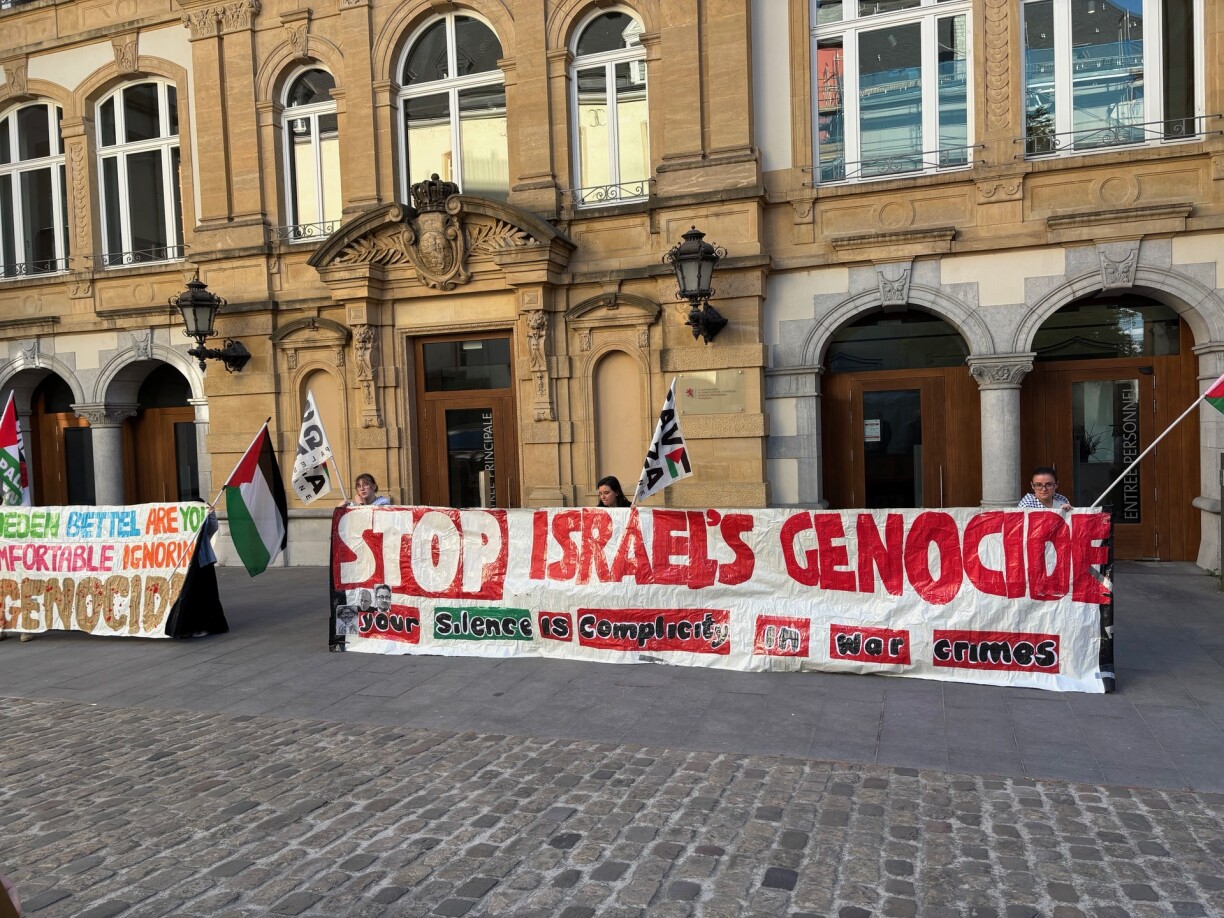
The upcoming parliamentary debate centres on Petition 3231, a civic initiative urging the Luxembourg government to align with international law and human rights standards by imposing sanctions on Israel.
These would include economic and academic sanctions, as well as targeted measures against specific individuals such as Israeli Prime Minister Benjamin Netanyahu, against whom the International Criminal Court (ICC) has issued an arrest warrant.
The petition surpassed the threshold of 4,500 signatures required for formal debate in parliament, gathering 4,768 signatories – making Luxembourg the only EU member state where a civic initiative has triggered a parliamentary debate.
Both Dalia Khader, the Palestinian-born Luxembourg citizen who initiated the petition, and Martine Kleinberg from Jewish Call for Peace, will present their demands to MPs and Minister of Foreign Affairs Xavier Bettel on 2 July.
The discussion unfolds amid growing public demand for governmental accountability. Historically, in 2014, former Minister of Foreign Affairs, Jean Asselborn, sought moves towards the recognition of Palestinian statehood, and such calls have resurfaced amid escalated Israeli military involvement prompting humanitarian crises in Gaza and the West Bank, with civilians and NGOs alike denouncing the Luxembourg government’s wait-and-see stance on the issue.
Organisers of the press conference noted that over 140 countries have recognised the state of Palestine, making the Grand Duchy one of the last to do so.
Joining the conference via Zoom, renowned actress Vicky Krieps reflected on her personal reasons for supporting the petition. As the granddaughter of a Nazi concentration camp survivor, Krieps drew on Luxembourg’s wartime motto “Mir wëlle bleiwen wat mer sinn” (‘We want to remain who/what we are’) as an assertion of not only national self-determination, but of human dignity.
“Palestinians also want to remain who they are,” she said. “And we need to support them in that.” The actress worried that the scale of human suffering in Gaza is becoming emotionally abstract.
“We live in bubbles and we’re disconnected. But in the end, we’re all equal, we’re all human beings. Any discourse that suggests otherwise is just a game of power played at the cost of human lives.”
When asked by an attending journalist about her stance on Hamas’ 7 October attack, Khader responded: “When you ask me that question, I feel as if you’re telling me our lives don’t matter as much, as if all the years before and after collapse into one day. That’s not fair. Don’t reduce the story of Palestine to 7 October.”
She clarified that she does not support the methods of violence used, but added that after 77 years of occupation and 17 years of blockade in Gaza, such an escalation should not come as a surprise.
Amnesty Luxembourg’s director David Pereira supported her view, pointing to previous democratic initiatives from Palestinians and Israelis that were ‘sabotaged’ – including the assassination of Israeli Prime Minister Yitzhak Rabin who was working toward peace. To Pereira, a sustainable peace requires deep-rooted addressing of systemic injustices.
Martine Kleinberg of Jewish Call for Peace further challenged insinuations of antisemitic violence that is often directed towards criticism of Israel’s policies. Jewish heritage, she argues, holds universal principles of dignity, responsibility, and commitment against injustice. “The question of action by no means directs itself against Israelis,” but rather its government.
On the contrary, Kleinberg highlighted how many Israeli citizens are mobilising in the streets, demanding not only the release of hostages, but also an end to the war and a change in government. “They, too, need our support,” she added, framing international pressure as crucial for democratic Israeli society.
Pereira delivered some of the sharpest remarks at the press conference, describing how recent Holocaust commemorations are being held simultaneously to the “extremely grave massacre of civilian populations just some kilometres away.” To him, “there is nothing difficult or complex about denouncing and stopping what is happening in Gaza.”
Amnesty first described Israel’s system in Gaza as apartheid in 2021, and in November 2024 concluded that the campaign amounts to genocide. The NGO cites the mass killing of civilians, targeted bombing of UN and humanitarian staff, “a record number of journalists,” and statements from top Israeli officials as indications of genocidal intent.
While Amnesty Luxembourg cautions against a blanket embargo, fearing more harm to Israeli civilians than its leaders, it firmly supports the suspension of the EU-Israel trade agreement as long as human rights are violated.
After all, ignoring international law threatens the very post-WWII principles that protect contemporary civilisation. “If we stop respecting human rights and international law, we open the door to the worst atrocities.”